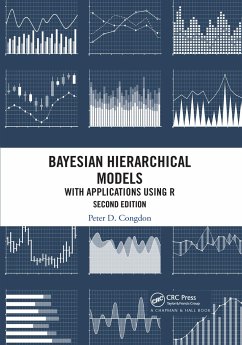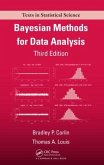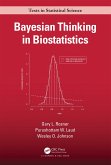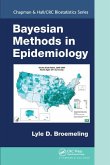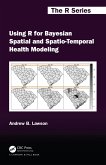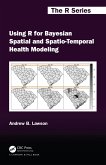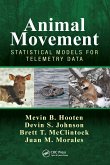An intermediate-level treatment of Bayesian hierarchical models and their applications, this book demonstrates the advantages of a Bayesian approach to data sets involving inferences for collections of related units or variables, and in methods where parameters can be treated as random collections. Through illustrative data analysis and attention to statistical computing, this book facilitates practical implementation of Bayesian hierarchical methods.
The new edition is a revision of the book Applied Bayesian Hierarchical Methods. It maintains a focus on applied modelling and data analysis, but now using entirely R-based Bayesian computing options. It has been updated with a new chapter on regression for causal effects, and one on computing options and strategies. This latter chapter is particularly important, due to recent advances in Bayesian computing and estimation, including the development of rjags and rstan. It also features updates throughout with new examples.
The examples exploit and illustrate the broader advantages of the R computing environment, while allowing readers to explore alternative likelihood assumptions, regression structures, and assumptions on prior densities.
Features:
Provides a comprehensive and accessible overview of applied Bayesian hierarchical modelling
Includes many real data examples to illustrate different modelling topics
R code (based on rjags, jagsUI, R2OpenBUGS, and rstan) is integrated into the book, emphasizing implementation
Software options and coding principles are introduced in new chapter on computing
Programs and data sets available on the book's website
The new edition is a revision of the book Applied Bayesian Hierarchical Methods. It maintains a focus on applied modelling and data analysis, but now using entirely R-based Bayesian computing options. It has been updated with a new chapter on regression for causal effects, and one on computing options and strategies. This latter chapter is particularly important, due to recent advances in Bayesian computing and estimation, including the development of rjags and rstan. It also features updates throughout with new examples.
The examples exploit and illustrate the broader advantages of the R computing environment, while allowing readers to explore alternative likelihood assumptions, regression structures, and assumptions on prior densities.
Features:
Provides a comprehensive and accessible overview of applied Bayesian hierarchical modelling
Includes many real data examples to illustrate different modelling topics
R code (based on rjags, jagsUI, R2OpenBUGS, and rstan) is integrated into the book, emphasizing implementation
Software options and coding principles are introduced in new chapter on computing
Programs and data sets available on the book's website
"...The material covered in the almost 600 pages is broad, rich, and presented in a dense and conciseway. There is a notable emphasis on longitudinal models, spatial applications as well as structural equations models, which seems natural given the focus on hierarchicalmodels...The readership that will benefit most from the book might be statisticians with intermediateor advanced-level expertise in Bayesian statistics and at least some basic experience in the software implementation of Bayesian modeling techniques. The second edition is particularly worthwhile since it catches up with the computational developments of the last decade. Overall, the book nicely illustrates the richness and the flexibility of hierarchical modeling options within the Bayesian framework."
- Christian Stock, Biometrical Journal, October 2020
- Christian Stock, Biometrical Journal, October 2020

